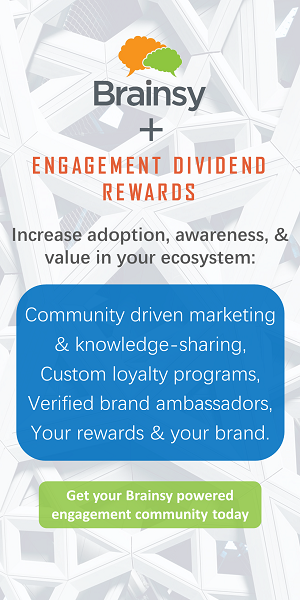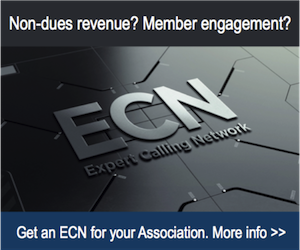Tags
Associations Boards of Directors Governing Foresight Strategy Future of Associating Thinking and Acting Beyond Orthodoxy Non-Profit Organizations Innovation Business Models
Biography
Jeff De Cagna FRSA FASAE is executive advisor for Foresight First LLC, located in Reston, Virginia, and a respected contrarian thinker on the future of associating and associations.
Jeff is an author, speaker and advisor for associations and non-profit organizations across North America and around the world. He is a Fellow of the Royal Society of Arts (UK) and a Fellow of ASAE: The Center for Association Leadership. Jeff served on the ASAE Board of Directors from 2007-2010, serves as immediate past chair of ASAE’s Key Consultants Committee and as a member of the ASAE 2020 Centennial Task Force. He also served on the RedRover Board of Directors from 2011-2013, including terms as both board chair and vice chair during that time. Jeff recently was elected to serve on the Hugh O’Brian Youth (HOBY) Virginia Board of Directors.
A graduate of the Johns Hopkins and Harvard universities, Jeff has pursued executive education at the MIT Sloan School of Management, Oxford University and Harvard Business School. He holds the BoardSource Leadership Certificate for Nonprofit Board Chairs, and has completed Foresight Practitioner training at the Institute for the Future.
Education
The Johns Hopkins University
Bachelor's Degree
Harvard Graduate School of Education
Master's Degree
Concentration in Learning and Teaching
MIT Sloan School of Management
Executive Certificate in Strategy and Innovation (executive education)
Oxford University Said School of Business
Oxford Scenarios Programme (executive education)
Harvard Business School
Governing for Non-Profit Excellence (executive education)
BoardSource
Leadership Certificate for Non-Profit Board Chairs
Institute for the Future
Foresight Practitioner Training
Other
Publications
Certifications
Specialization, Design Thinking and Innovation
University of Virginia Darden School of Business
July 2016 - present
Thank you for the question. Three things to consider:
1. The COVID-19 pandemic is not a wholly unexpected or "black swan" event. In the work of foresight, what is happening now is considered a "wildcard," i.e., something we knew could happen, but we didn't know when. Indeed, there has been considerable discussion of the possibility of a devastating global pandemic over many years, including in a prescient Bill Gates TED talk from 2015.
2. Now that we're in the middle of a crisis, the best option is for chief staff executives and their teams to monitor and manage their associations' day-to-day actions, with the benefit of board perspective and support. Consistent with the duty of foresight, boards (with staff assistance) must focus their attention on learning with the future to understand, anticipate, and prepare for the "next normal" worlds that could plausibly occur in the ensuing 12-18-24-36 months. I use the term "next normal" here because I don't believe the environment that emerges in the immediate aftermath of the current crisis will last. We're going to be feeling this turbulence for some time as we move through different stages.
3. We are all feeling vulnerable right now. Vulnerability is a natural human reaction to risk and uncertainty. Association staff and voluntary decision-makers are not exempt, and it will be highly detrimental to meaningful collaboration if they choose to hide their vulnerability because they want to be "business-like" or "professional." Each of us needs to share what we're feeling so we can support one another, move beyond coping with the current situation, and concentrate on building our associations, stakeholders, and fields to thrive for the remainder of this decade.
Thank you again for your question. I hope you find my response helpful. You're welcome to reach out with any follow-up you may have.
What do association decision-makers need to understand about AI today and going forward?
In this context, association decision-makers should think of AI as both a substantial threat to the current state of the professions and industries they serve, and a huge opportunity to imagine a more compelling future for existing and emerging stakeholders alike. Association boards, chief staff executives and other decision-makers need to learn with the future to identify the best approaches for addressing both sides of the challenge that AI creates.
Please register for the Foresight First Briefing, Artificial Intelligence: What Association Decision-Makers Need to Know, to be held on Tuesday, June 27 at 2 pm EDT. Please use promo code AI2017 when you sign up.
Is it too early for association decision-makers to focus their attention on AI? At the risk of being impolite, let answer this question with a different question. Based on the totality of our experience with tech-driven societal transformation over the last 20+ years, how do we know it's not already too late? There is only one way to find out: embrace the duty of foresight and pursue the work of learning about AI without further delay.
Please register for the Foresight First Briefing, Artificial Intelligence: What Association Decision-Makers Need to Know, to be held on Tuesday, June 27 at 2 pm EDT. Please use promo code AI2017 when you sign up.
What do you do when it is clear that your aging CEO is not physically/mentally able to handle the job (frail, poor memory, can't understand basic association concepts) but doesn't have any plans in the foreseeable future to resign?
I realize you can't go to the Board. If you approach him about shortcomings he is defensive and argumentative. The Board is not going to terminate (he is one of them). Is the only course of action for staff to leave?
This is an important and highly sensitive question to which I would like to offer a response. To be respectful of all concerned, however, I would prefer to share it directly with the person who posed the question. Please email me at jeff [at] principledinnovation [dot] com so we can figure out the best way to make that happen.
This is an intriguing question that should be investigated further. At the moment, however, I don’t have any data (anecdotal or otherwise) to offer a meaningful response.
The obvious case is when an association’s financial resource limitations make it impractical to maintain a standalone physical location and/or staff. The more interesting opportunity is when an association can develop a serious strategic advantage to its business model, through the cost savings created by multiple management, through the use of technology and through the application of the unique knowledge and expertise of the association management company.
This is a really interesting question! Since I don’t do predictions, let me reframe the question to offer an idea for a position that associations can create today to prepare for the future. I think associations would benefit enormously from the role of “chief foresight officer.” Through this role, associations would be able to build a deeper capacity for foresight at all levels of the their organizations. The focus on foresight would help manage risk while accelerating the pace of value creation through innovation. The chief foresight officer would work with the board on the duty of foresight and with the CEO and C-Suite peers to ensure they can better understand plausible futures for the association and the field it serves.
Yes, I will be presenting a full-day pre-conference workshop at #ASAE16 on “Building Your Association’s Capacity for Foresight,” on Saturday, August 13, 2016 from 8 am-4 pm. It is going to be an excellent session, and you will receive a certificate for your attendance. You can use promo code JEFF10 when you register to receive a discount.
You can watch a preview of the workshop at http://pinnovat.es/asae16foresightworkshoppreview.
Do Executive Directors generally feel that Associations are in the fight for their lives?
Hi Jeff:
Thanks for participating in this AMA session. Earlier this year I was involved in an email exchange with a long-standing association Executive Director that was considering an association branded ECN but decided to punt the decision to a later time. She cited the current economic climate and indicated: "We are simply not in a position to expand offerings that add cost. Associations continue to fight for their lives."
We have subsequently entered into royalty agreements with associations so that they don't incur any out-of-pocket expenses to launch an ECN under their banner and that seems to be going well. However, I was curious about the statement that "Associations continue to fight for their lives." Is that the general sentiment of EDs in the association industry? With so many innovative offerings and third party providers available to partner with associations, it seems that it could also be the best of times. Thanks for your thoughts.
Brian
Thanks for your question Brian. The story you share captures my attention for its bluntness and, quite honestly, the underlying fear it reveals. While I have not heard other association CEOs express themselves in exactly this way, it does not surprise me that some CEOs believe their organizations are in a struggle for survival. In some fields, that is almost certainly true.
The powerful forces of societal transformation, including the disruptive impact of technology, will destroy some jobs, fundamentally alter the way many jobs are performed and create entirely new jobs. No matter how you look at it, this dynamic environment creates strategic challenges for associations for which many senior staff and voluntary decision-makers are not yet prepared.
The overwhelming majority of associations operate on “membership-centric business models,” which are business models that make the selling of memberships the centerpiece of value creation, delivery and capture. In these business models, the focus of organizational decision-making is always on membership sales and how to maximize them, and boards use membership metrics to evaluate the health of their organizations.
Among my concerns about membership-centric business models are 1) they focus almost entirely on optimizing one form of value, i.e., membership sales, to the exclusion of creating thicker forms of value that can help stakeholders solve their problems, meet their needs and achieve their outcomes, 2) they create unnecessary barriers to entry into meaningful value-based relationships with stakeholders for whom the membership relationship is not the right fit and 3) they typically require significant investments of human time, energy and attention for minimal return.

